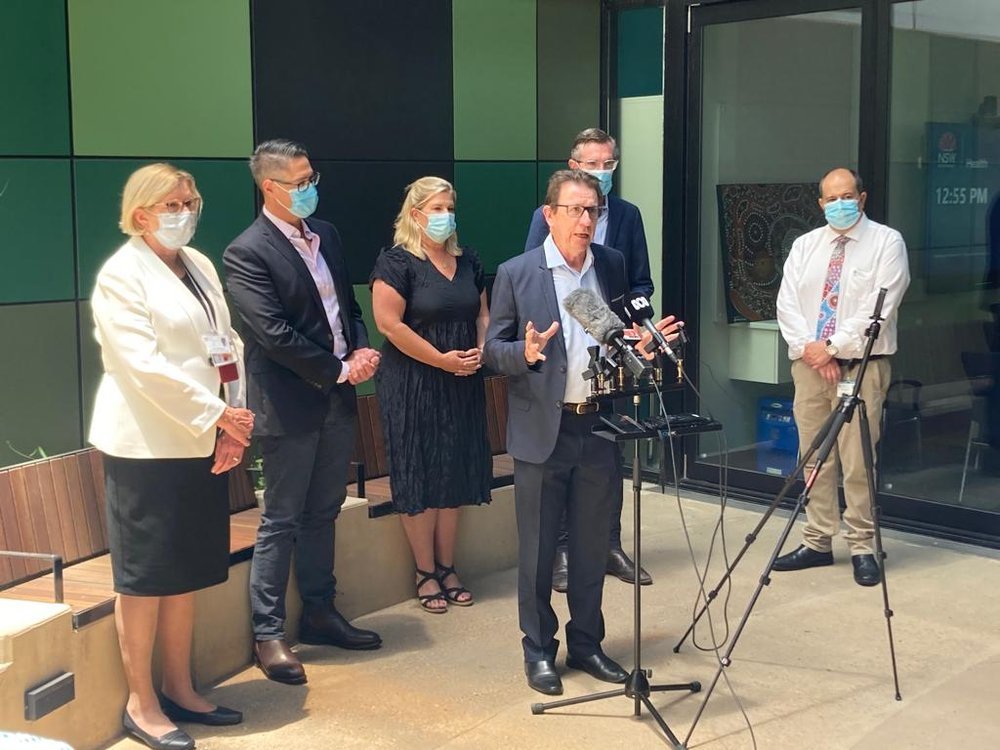Opinions split over calls for state rural health department
Oliver Brown
06 March 2022, 8:03 PM
 Coonabarabran GP Dr Aniello Ianuzzi worries the establishment of a designated rural health department in the state government will hinder rather than help the rural health industry.
Coonabarabran GP Dr Aniello Ianuzzi worries the establishment of a designated rural health department in the state government will hinder rather than help the rural health industry.Medical practitioners from across regional NSW have expressed a range of opinions over the idea of setting up a designated department of rural health in the state.
While some say they are open to exploring the possibility of a broad government body solely focused on rural health, one doctor from the Warrumbungle shire worries the industry is already cluttered in bureaucracy.
Calls for such a department were officially made by independent state MP for Wagga Wagga and country GP Dr Joe McGirr in parliament last month, who also recently launched a public e-petition supporting the idea.
Dr McGirr said he acknowledged there had been a great deal of work done in the last 20 years to improve rural, regional and remote health, however the recent state rural health inquiry showed there was still a lot more to do to improve services.
“We now have a Regional Health Minister in NSW (Bronnie Taylor) and I believe she needs the support of a department behind her,” Dr McGirr said.
“The petition calls on the government to establish a department of rural health to safeguard and increase rural health services and provide the rural health workforce that communities need on the ground."
Dr McGirr has outlined four key priorities the department should focus on: workforce, advocacy, safeguarding and potentially expanding existing regional health services, and working with the federal government to support the training of general practitioners and providing drug and alcohol and mental health services.

ABOVE: Dr McGirr has been very active in his calls for a designated rural health department headed by new Minister for Regional Health Bronnie Taylor. Image courtesy of Dr Joe McGirr.
One organisation which has since come out in support of Dr McGirr's proposal is state agricultural body NSW Farmers.
NSW Farmers member and retired occupational therapist Sarah Thompson said country communities have experienced a lower level of access to health services, and a dedicated rural health department might address those problems.
“We know rural health is not something you can improve by simply throwing money at it, we need a commitment and focus to deliver the services that are needed,” Mrs Thompson said.
“As people increasingly look to the regions for affordable housing and better liveability, they will put more strain on already-stretched health infrastructure.
“A rural health department could ensure healthcare facilities including hospitals, clinics, private practice, ambulances, mobile health provision and other health facilities are appropriately resourced.”
Ms Thompson acknowledged while a lot of funding had been invested in regional health, particularly to improve local infrastructure and equipment, there should be equal focus on building the number of health professionals actually working at these facilities.
However, for Coonabarabran-based general practitioner Dr Aniello Ianuzzi, using government resources to establish yet another department in the health space was a poor move.
Dr Ianuzzi, who is also the Chairman of the Board of Governors in the Australian Doctors Federation, said attention should instead be on improving what was already set up.
"We already have more than enough bureaucratic mechanisms in place - from PHM's to LHD's, we don't need any more bureaucracy," Dr Ianuzzi said.
"Every time we bring in new players, they always bring with them new forms, new meetings, new distractions. That's not what we need, it's the opposite of what we need."
"The only solution to the gaps in rural health is less red tape and more money spent on services and no new department is going to do this."
A spokesperson from Ochre Health, which runs 15 Ochre Medical Centres in rural towns across NSW, including Coonamble, Bourke, Brewarrina, Walgett, Lightning Ridge and Collarenebri, said his organisation welcomed a closer focus on rural health via a dedicated department.
He also noted, however, that significant funding will be required to establish it.
“We would encourage the proponents and government decision-makers to consider whether better value may be gained from dedicating additional resources and funding to Local Health Districts and other organisations already imbedded in the provision of rural healthcare,” he said.
While NSW Health declined to comment on Dr McGirr's proposal, a spokesperson for Minister Taylor, who Dr McGirr believes should head such a department, said she would be open to investigating new ways of improving regional health.
"The establishment of the first Minister for Regional Health is a significant step forward in ensuring that the people of regional NSW have access to the services they need and deserve," the spokesperson said.
"Never has the NSW Government’s investment into regional health been greater, however, we recognise that there are challenges to overcome.
"As a registered nurse, Minister Taylor has extensive experience in regional health but it is extremely important to her that she has open eyes and her ears to the ground in her new role.
"She is very willing to sit down and discuss any ideas on how we can improve health outcomes for regional NSW."




